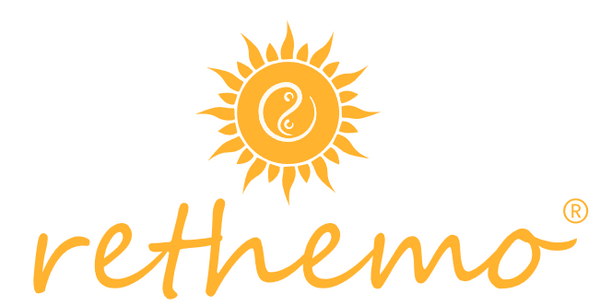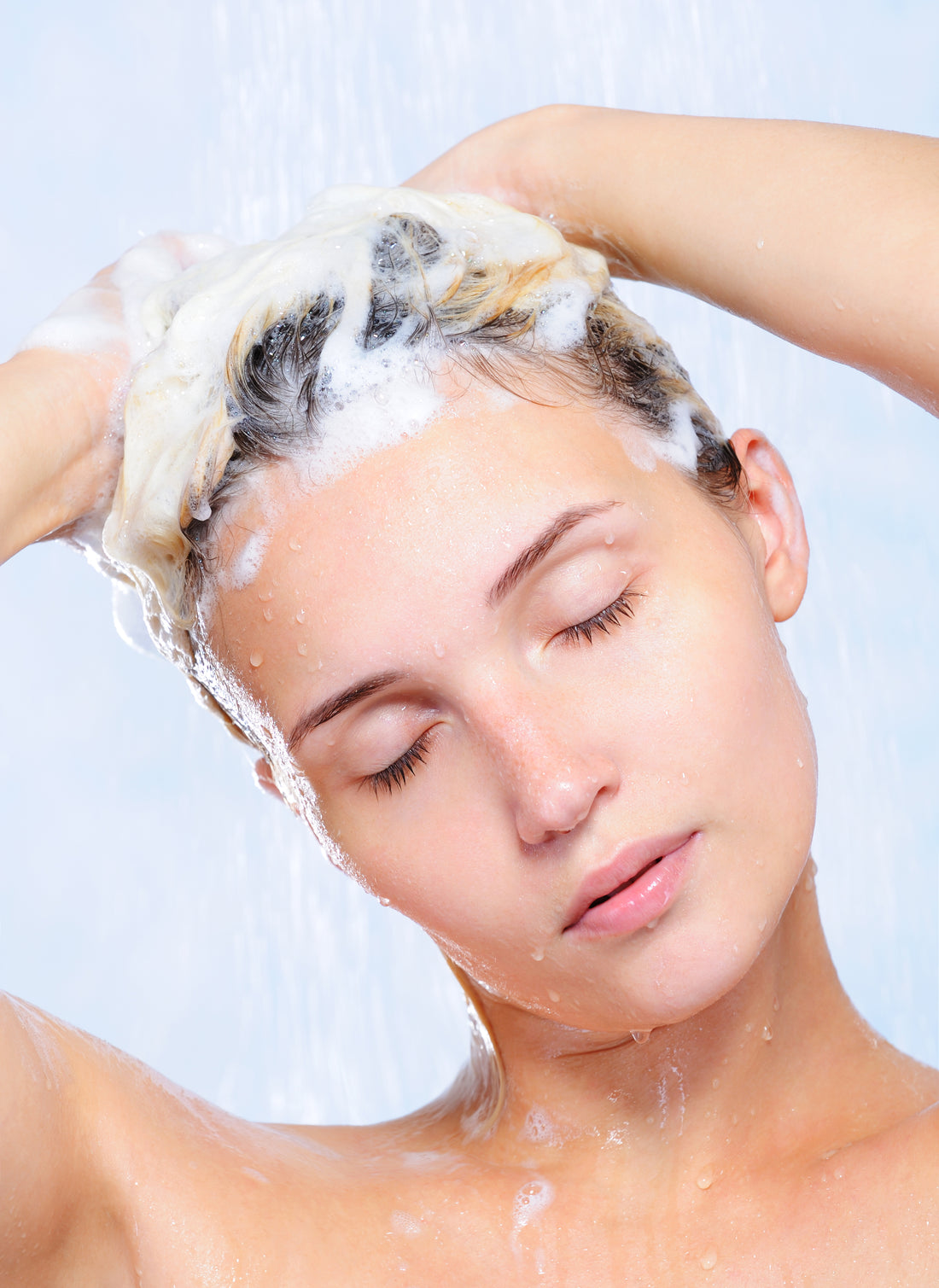Soap has been a household remedy for washing hair for centuries. It can clean gently and effectively - if used correctly. Here are the best tips for washing your hair with soap. How to wash your hair with soap? Which soaps are best for washing your hair? Let's find out:
The history of soap making dates back to 2800 BC. Soap has been used for cleaning since time immemorial, and many people are returning to this traditional product.
No wonder when you know the impact commercial shampoos have on your hair and the environment.
Shampoos often contain SLS (Sodium Lauryl Sulfate), silicones, parabens and microplastics. They clean the hair too thoroughly, irritate the scalp and form artificial layers on the hair.
This is not only very harmful for your hair, but also for the environment. After washing your hair, these substances are washed down the shower drain, into the sewer system and finally into the sea.
If you are wondering: “Should I wash my hair with soap or shampoo?” - the rethemo team would recommend soap or a natural shampoo without SLS, silicones and parabens.
How to wash your hair with soap
Washing your hair with soap takes some getting used to, but you'll quickly get the hang of it!
- Wet your hair before using the soap
- Rub the soap between your hands or directly on your hair
- Massage the soap in with your fingertips.
- Rinse your hair and repeat the application as desired.
Which soap is suitable for hair?
Washing your hair with soap is a good way to clean your hair, but not every soap is suitable.
Curd soap is generally not suitable for hair as it dries it out. This is because the manufacturing process removes the water-soluble glycerin, which can strip the hair of its natural moisture.
Natural soaps and the oils they contain, such as Aleppo soap or olive oil soap, are much better for washing your hair. These soaps nourish your hair, make it soft and give it a pleasant scent.
The Aleppo soap consists only of olive oil and organic laurel oil in varying proportions.
Washing hair with soap tips
1. Be patient
Switching from conventional, chemical shampoos to soap can take some time. Expect an adjustment period. Over the years, shampoos deposit silicones and microplastics in your hair, which need to be washed out.
Your hair needs to be returned to a natural state. Initially, your hair may feel greasy, stringy or waxy as your scalp adjusts its oil production. This process can take a few weeks. It is recommended to try a shampoo regimen for 1-2 months to allow your hair and scalp to fully adjust. Perseverance is required during this phase!
If you use the hair soap for a longer period of time, your hair can better absorb the nourishing ingredients of the natural soaps. In addition, your hair will not become greasy as quickly as with conventional shampoo!
2. Rinse
When you wash your hair with soap, you must rinse it well. Rinse your hair for a long time and very thoroughly.
A cold rinse after washing your hair can have a positive effect on closing the hair structure better after washing, making the hair easier to brush.
For best results, rinse your hair with diluted apple cider vinegar. Simply add 1-2 tablespoons of apple cider vinegar to 1 liter of water and rinse your hair with it.
This is especially recommended if your water is very hard. You don't want hard and calcareous water to leave soap residue in your hair. A simple "acidic rinse" can prevent this.
Apple cider also acts as a natural conditioner.
Washing hair with soap
Even if it seems a bit complicated, it is worth switching to natural soaps when washing your hair.
Your hair will thank you! The natural and nourishing ingredients will make your hair and scalp healthier.
In addition, natural soaps are better for the environment than shampoos in disposable plastic bottles. They save a lot of plastic waste.
Plus, you don't flush harmful synthetic substances down the drain or into the ocean. Natural soaps are biodegradable, meaning they can be broken down naturally by nature.
The natural soaps from rethemo
The production of natural, organic products that are good for you and the environment is at the heart of rethemo's work.
The natural soaps are developed with a few, high-quality ingredients from the best organic ingredients. The ingredients are of organic quality - this means ingredients that are biodynamic.
The natural soaps are all free of sulfates, parabens and silicones. We do not use palm oil, no plastic and all products are vegan.
We have natural soaps for different applications: natural soaps for hair, body and also for shaving.
The natural soaps are all made from pure and organic vegetable oils:
Laurel oil
Bay oil is obtained by cold pressing bay leaves. The oil has an antiseptic and at the same time nourishing effect. It can therefore be helpful for common scalp conditions such as dandruff. Research has shown that it can increase hair thickness and stimulate hair growth. The leaves of the bay tree were already used in ancient times and the oil was said to have incomparable healing powers.
Babassu oil
Babassu oil is characterized by its high content of lauric acid. Babassu oil combats dry hair by preventing moisture loss and nourishing the hair strands. In addition, the high proportion of vitamin E in babassu oil acts as a powerful antioxidant and protects the hair from damage. Only high-quality, cold-pressed babassu oil contains a high proportion of ingredients. Babassu oil is particularly recommended for dry, sensitive hair.
olive oil
Olive oil is extracted from the pulp of organically grown olives and offers numerous benefits for hair care. Cold-pressed, it contains the full spectrum of active ingredients. It provides the hair with essential moisture and intensive care. The high content of unsaturated fatty acids as well as the high-quality ingredients such as vitamin E and various antioxidants can help to strengthen the hair strands, reduce hair breakage and promote general hair health.
The soaps are delivered in paper packaging or in refillable recycled PET (made from old plastic bottles) or glass bottles. No more new plastic bottles!



